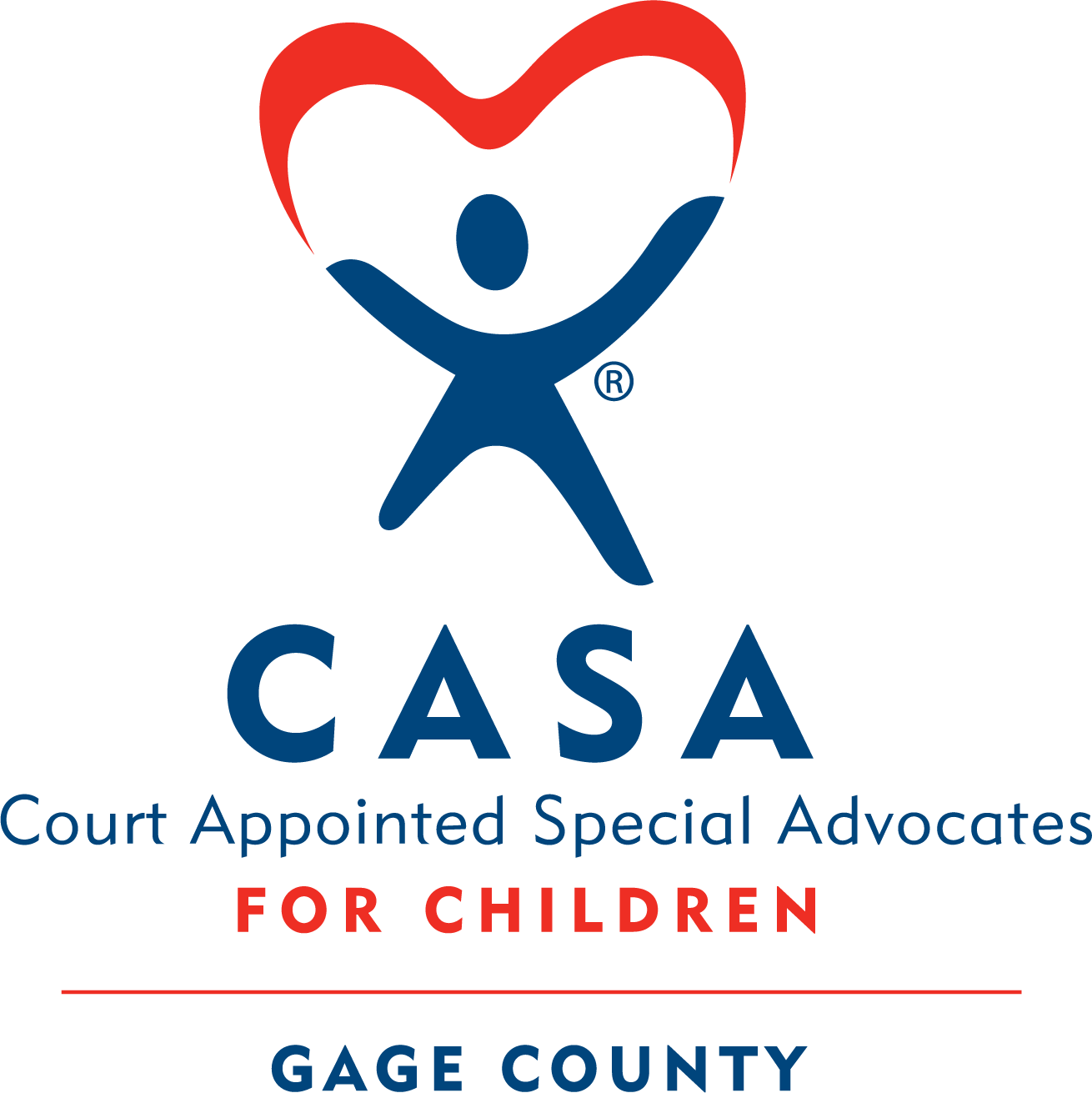
This Year's Project: Bridging the Gap
About Our Organization
CASA stands for Court Appointed Special Advocates. These are dedicated community members, specially trained and appointed by a judge, who advocate for the best interests of abused or neglected children involved in the court system. CASA volunteers meet with children, families, teachers, doctors, caseworkers, and others, gathering crucial information to make informed recommendations to the court about the child's future. The ultimate goal of CASA is to ensure every child has a safe, permanent home where they can thrive. In Gage County, with nearly 4,760 children under the age of 18, there are an average of 373 Child Protective Services (CPS) calls every year. Since 2019, we have trained over 30 volunteers to serve children across the county, ensuring they receive the care, stability, and support they deserve. Children with CASA volunteers are more likely to access needed services, spend less time in foster care, and find permanent, loving homes. One CASA volunteer recently shared, “Being able to help a child find hope and safety amid chaos has been one of the most rewarding experiences of my life.” These stories reflect the heart of what CASA stands for—creating a brighter future for children. By supporting CASA of Gage County during the BIG GIVE EVENT, you are directly impacting the lives of vulnerable children in our community.
Current Project: Bridging the Gap
CASA (Court Appointed Special Advocates) of Gage County is committed to bridging the gap in family resources by training volunteers to advocate for the best interests of abused and neglected children in the court system. Our mission is to ensure these vulnerable children receive the care and advocacy they need to thrive. With your support, we aim to enhance our programs, strengthen family bonds, and promote positive interactions between children and their families. Our advocates play a crucial role in guiding children through one of the most challenging periods of their lives, ensuring their voices are heard and their needs are met. Research shows that one of the most crucial factors contributing to a child's success is having a caring and supportive adult in their life. Many of us can identify someone who helped shape us into the person we are today. Unfortunately, in Gage County, with 4,760 children under the age of 18, there is an average of 373 CPS calls each year. This equates to 1 in 12 children potentially needing support, highlighting the urgent need for our services. We assist parents with essential tools and help maintain vital connections. Youth in foster care often face barriers to participating in extracurricular and social activities due to financial constraints. We have purchased show choir dresses, suits, school pictures, and athletic wear to ensure that kids can engage in activities that foster personal development and a sense of belonging. Your donation promotes inclusion, allowing foster youth to participate in activities that create positive memories and foster a sense of normalcy. We will continue to organize adoption parties and other celebrations that provide opportunities for families to bond and create lasting positive memories. Activities may include recreational outings such as skating and bowling, fostering inclusion, well-being, and a sense of normalcy for children navigating challenging circumstances. Your generosity is essential in helping these children feel respected and nurtured, ensuring they have the resources and support they need to thrive. By supporting CASA of Gage County, you help ensure that children in our community feel safe, respected, and encouraged to explore their potential. With your help, these children will one day look back and acknowledge the people who supported and nurtured their development. All proceeds directly support the youth in Gage County, making a meaningful difference in their lives.